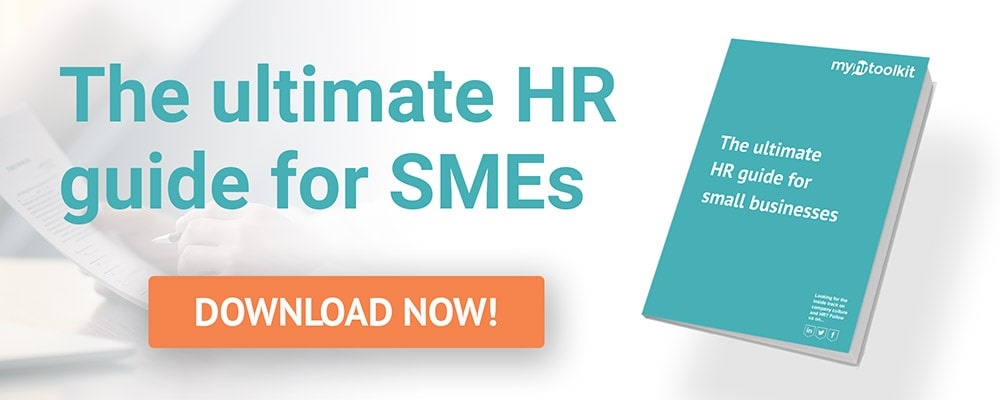It's common knowledge that Human Resources is important for any business with employees, but how can HR help the business grow and flourish? Learn how HR can support business growth with this guide from HR consultant and author Gemma Dale FCIPD.
How can good Human Resources help your business to grow? Easy. HR is all about your people, and people are one of your biggest assets. Without the right people doing the right things at the right time, business growth will be hard to achieve, if not impossible. HR is the key to making this happen.
The employment lifecycle

The employment lifecycle is the formal term used to describe each stage of the employee journey through a particular organisation over time. It begins with the very first contact a potential employee has with a prospective new employer and ends on their final day of employment.
This lifecycle encompasses recruitment, induction, reward, recognition, learning and development, performance management, and employee relations. It includes every people related document, policy and process, communication, and interaction. Quite a list indeed – but each of these areas make up the entire experience that an employee has with their employer. The Human Resources department is responsible for each of these functions.
Separate to the employment lifecycle, but fundamentally connected, is every single person within the organisation. Together, these related elements create employee engagement and job satisfaction – or they don’t.
People and business growth
Engaged, happy employees are more likely to be productive, effective, and motivated. They are also more likely to stay with an employer when they have job satisfaction, have a supportive manager, and are able to contribute to meaningful work. Employee engagement in particular has been linked to organisational and financial performance.
Learn more: Employee engagement strategies: how to engage employees
Recruiting, training, engaging, and retaining good people is essential for organisational effectiveness. This is what good HR can deliver to your business – when it is also properly understood, supported, and resourced.
Business growth is driven by many different activities. Marketing, branding. and sales are of course key. So too is the overall product or service proposition, the customer service provided, and the business processes that enable delivery. But every single one of these elements also needs good people to deliver them.
What is good HR?

Good HR, and specifically HR that will support business growth, ensures excellence at every stage in the employment lifecycle. The CIPD, the professional association for Human Resources in the UK, describes good HR as being principles led, evidence based, and outcomes driven. Treating people fairly and ethically, striving for good and meaningful work, and introducing initiatives that are known to deliver results are just some of what good HR is all about.
How good HR helps with business growth
Here are just a few ways that effective Human Resources practice can support and enable business growth:
- Hiring great people and inducting them successfully into the organisation.
- Keeping the business compliant with employment law and good practice.
- Supporting people managers to become skilled at leading and developing others.
- Provision of management information about an organisation’s human resources, supporting good decision making.
- Establishing systems, processes and policies that create a great employee experience.
- Providing effective learning and development, enabling people to perform at their best.
- Helping managers to address employee underperformance that may result in negative outcomes for the organisation.
- Support the health and wellbeing of employees throughout the business, helping to reduce absence from work and reduce the potential for stress.
- Focusing on equality, diversity, and inclusion – companies that with diverse workforces often outperform organisations that do not.
- Designing reward and recognition approaches that help employees to feel valued, therefore contributing to their retention.
- Working in partnership with leaders, supporting the development of an organisational culture in which employees can thrive and give their best.
Getting HR right for your business
Of course, no HR department can accomplish these tasks alone. They need to be undertaken in partnership with people managers and business leaders. For HR to play an optimal role in business growth, the activities described above should be aligned to the particular strategic aims and objectives of the business.
Learn more: How to create a business-driven HR strategy
If HR is treated predominantly as an administrative function, responsible only for managing the paperwork and getting people paid, it will have a limited opportunity to contribute to long term business growth.
Cut down the time you spend on HR admin and spend more time on HR strategy and business growth by getting HR software in place.
When businesses are growing, especially in the early stages, it is all too easy to respond reactively to human resource needs, addressing issues only as they arise. This is a common mistake, but one to avoid. Taking a planned approach instead to people, talent and culture will deliver results.
When a business is aiming for growth, a long term people plan must be part of the strategy. Every growing business needs a unique selling point. With great HR in place, this might just be the people that work for you.
Read more from the myhrtoolkit blog

Written by Gemma Dale
Gemma Dale is an experienced senior HR professional, CIPD Chartered Fellow, HEA Fellow, and a regular speaker and writer on a variety of HR topics. Gemma is the co-author of the book 'Flexible Working' published by Kogan Page in 2020. She is also a lecturer in the Business School at Liverpool John Moores University and runs her own business, The Work Consultancy.


 Holiday Planner
Holiday Planner Absence Management
Absence Management Performance Management
Performance Management Staff Management
Staff Management Document Management
Document Management Reporting
Reporting Health and Safety Management
Health and Safety Management Task Management
Task Management Security Centre
Security Centre Self Service
Self Service Mobile
Mobile




